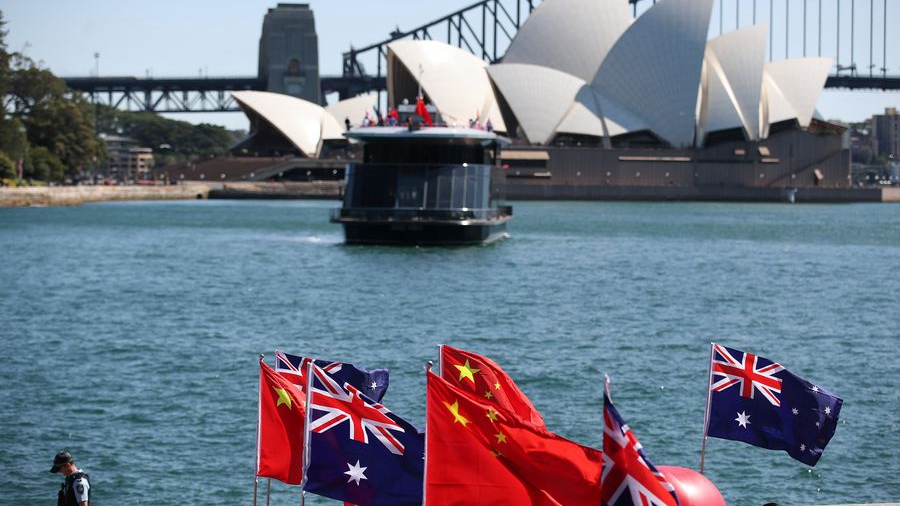
The Chinese and Australian national flags in Sydney, Australia. [Photo/Xinhua]
This is an editorial from China Daily.
A 15-people business delegation composed of Australian corporate executives and local government officials is reportedly to pay a six-day visit to China starting April 23. With representatives of major Australian banking and mining sectors, the group is expected to explore green energy cooperation opportunities during visits to Hong Kong, Tianjin and Shenzhen.
As Australia China Business Council National President and Chair David Olsson said, this is an opportunity for Australian businesses to get a feel of the opportunities presented by China's focus on quality development. The Australian interest in fresh trade and investment realms will certainly be enthusiastically embraced by potential partners in China.
More important, however, is the fact that, as the first official Australian business delegation in three years to visit China, the anticipated trip, organized by the Australia China Business Council and supported by the Australian federal government, is the latest sign of the thaw in diplomatic relations between Beijing and Canberra.
Memories of the thriving economic cooperation and flourishing trade ties between the two countries, which proved instrumental in promoting both parties' recent prosperity, remain vivid, and the cost of politicizing economic and trade ties has been felt keenly in both countries. Both governments have felt the need for repair work.
With both Beijing and Canberra toning down their diplomatic rhetoric and expressing hopes for trade normalcy, they have resumed ministerial level meetings. Beijing has lifted restrictions on Australian coal imports. Canberra is hopeful the three-year-old trade barrier on Australian barley may be lifted in months. Responding to reports that the Chinese side has "in principle" invited him to visit, Australian Prime Minister Anthony Albanese has said he would accept an invitation should he receive one.
Australian Foreign Minister Penny Wong was correct in saying bilateral trade ties won't return to the historical high level between 1996 and 2007, when they were largely "separated" from political and strategic considerations. But that doesn't mean the two countries should ignore the boundless potential benefits from constructive engagement.
"Even with increased diversification, China will remain Australia's largest trading partner for the foreseeable future, and a valued source of foreign investment, where it meets our national interests," she said.
"Pragmatic cooperation" is the bedrock of China's Global Development Initiative and Beijing is trying hard to persuade the rest of the world that ideological differences should not prevent countries from being trade partners and engaging in mutually beneficial economic cooperation. Australia can set a good example in this respect by continuing to uphold the improvement in relations.

 中文
中文



